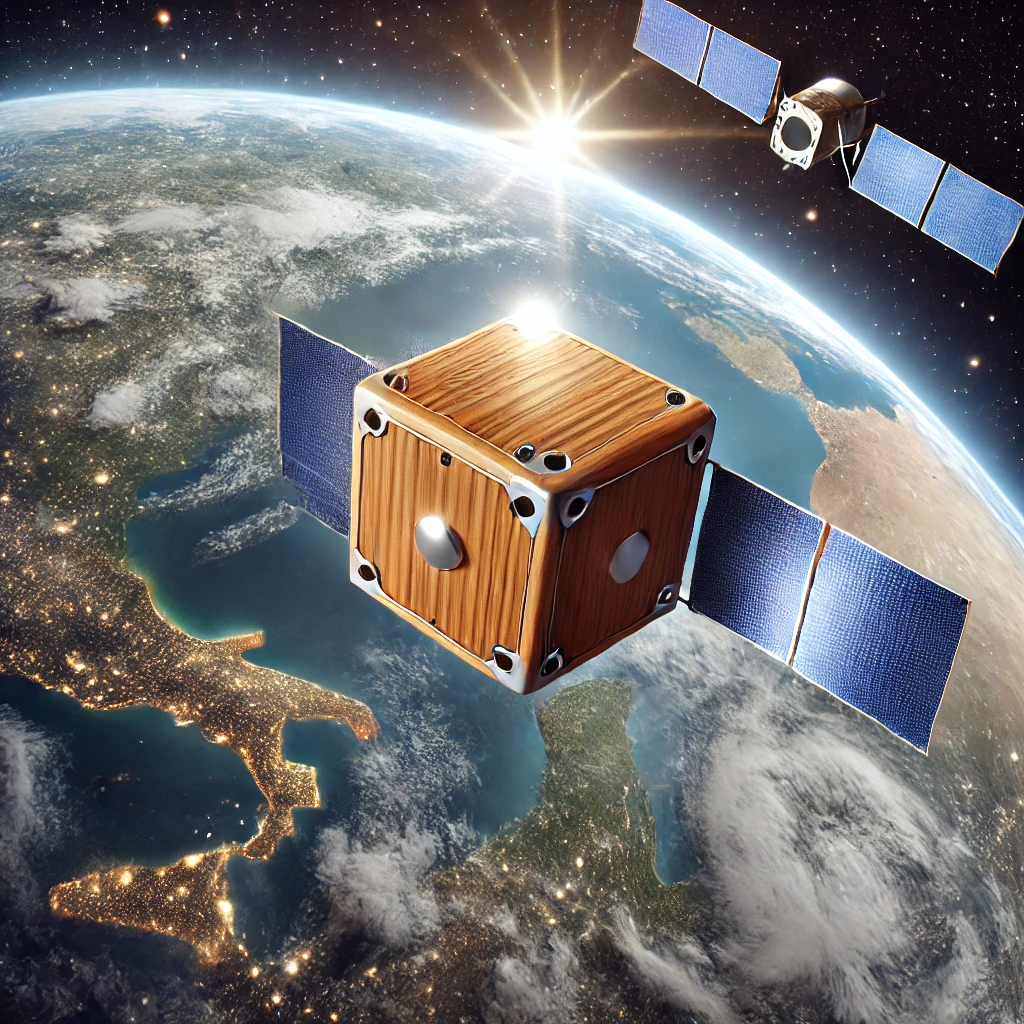LignoSat, the world’s first wooden satellite, was deployed from the ISS to test wood’s resilience in space’s extreme conditions. Developed by Kyoto University and Sumitomo Forestry, the eco-friendly satellite aims to explore sustainable alternatives to traditional aluminum alloys. Success could revolutionize satellite manufacturing by reducing pollution caused by reentry debris.
Overview
- LignoSat: A wooden satellite designed by Kyoto University and Sumitomo Forestry.
- Purpose: To test the durability of wood (magnolia-wood body) in the harsh conditions of space.
- Deployment: Launched aboard SpaceX Falcon 9 on Nov. 5, 2024, and deployed from JAXA’s Kibo module on the ISS in December.
Mission Objectives
- Examine wood’s response to temperature fluctuations (+121°C to -157°C) and solar wind radiation.
- Assess potential for eco-friendly satellite materials as alternatives to aluminum alloys.
- Measure geomagnetic levels to check for technological interference through wooden structures.
Environmental Context
- Traditional aluminum alloys release ozone-depleting aluminum oxides upon reentry, contributing to potential climate changes.
- A successful mission could shift industry standards toward sustainable satellite construction.
Potential Impact
- Promotes environmental sustainability in satellite manufacturing.
- Minimizes harmful metallic dust pollution during satellite reentries.
- May address concerns related to rising satellite numbers and climate change effects.
Reference: Space

